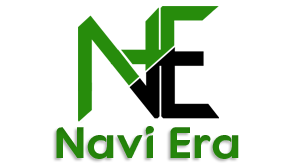Trust and Security in the Cloud - Google’s Trusted Infrastructure Quiz Questions and Answers
Q1. What metric does Google Cloud use to measure the efficiency of its data centers to achieve cost savings and a reduced carbon footprint?
Option 1: Energy Efficiency Ratio (EER)
Option 2: Data Center Infrastructure Efficiency (DCiE)
Option 3: Total Cost of Ownership (TCO)
Option 4: Power Usage Effectiveness (PUE)
Q2. Google Cloud encrypts data at various states. Which state refers to when data is being actively processed by a computer?
Option 1: Data in use
Option 2: Data lake
Option 3: Data at rest
Option 4: Data in transit
Q3. Which is a powerful encryption algorithm trusted by governments and businesses worldwide?
Option 1: Isomorphic Encryption (IE)
Option 2: Lattice-Based Cryptography (LBC)
Option 3: Post-Quantum Cryptography (PQC)
Option 4: Advanced Encryption Standard (AES)
Q4. Select the correct statement about Identity and Access Management (IAM).
Option 1: IAM provides granular control over who has access to Google Cloud resources and what they can do with those resources.
Option 2: IAM is a cloud service that encrypts cloud-based data at rest and in transit.
Option 3: IAM is a cloud security information and event management solution that collects and analyzes log data from cloud security devices and applications.
Option 4: IAM is a system that detects and prevents malicious traffic from entering a cloud network.
Q5. Which practice involves a combination of processes and technologies that help reduce the risk of data breaches, system outages, and other security incidents in the cloud?
Option 1: Site Reliability Engineering (SRE)
Option 2: Zero Trust Security
Option 3: Security Operations (SecOps)
Option 4: Cloud Security Posture Management (CSPM)
Q6. Which aspect of cloud identity management verifies the identity of users or systems?
Option 1: Authorization
Option 2: Auditing
Option 3: Authentication
Option 4: Accounting
Q7. What security feature adds an extra layer of protection to cloud-based systems?
Option 1: Firewall as a Service (FaaS)
Option 2: Data Loss Prevention (DLP)
Option 3: Security Information and Event Management (SIEM)
Option 4: Two-Step Verification (2SV)
Q8. What Google Cloud product provides robust protection from harmful distributed denial-of-service (DDoS) attacks?
Option 1: Cloud Load Balancing
Option 2: Cloud IAM
Option 3: Cloud Monitoring
Option 4: Google Cloud Armor
Option 2: Data Center Infrastructure Efficiency (DCiE)
Option 3: Total Cost of Ownership (TCO)
Option 4: Power Usage Effectiveness (PUE)
Q2. Google Cloud encrypts data at various states. Which state refers to when data is being actively processed by a computer?
Option 1: Data in use
Option 2: Data lake
Option 3: Data at rest
Option 4: Data in transit
Q3. Which is a powerful encryption algorithm trusted by governments and businesses worldwide?
Option 1: Isomorphic Encryption (IE)
Option 2: Lattice-Based Cryptography (LBC)
Option 3: Post-Quantum Cryptography (PQC)
Option 4: Advanced Encryption Standard (AES)
Q4. Select the correct statement about Identity and Access Management (IAM).
Option 1: IAM provides granular control over who has access to Google Cloud resources and what they can do with those resources.
Option 2: IAM is a cloud service that encrypts cloud-based data at rest and in transit.
Option 3: IAM is a cloud security information and event management solution that collects and analyzes log data from cloud security devices and applications.
Option 4: IAM is a system that detects and prevents malicious traffic from entering a cloud network.
Q5. Which practice involves a combination of processes and technologies that help reduce the risk of data breaches, system outages, and other security incidents in the cloud?
Option 1: Site Reliability Engineering (SRE)
Option 2: Zero Trust Security
Option 3: Security Operations (SecOps)
Option 4: Cloud Security Posture Management (CSPM)
Q6. Which aspect of cloud identity management verifies the identity of users or systems?
Option 1: Authorization
Option 2: Auditing
Option 3: Authentication
Option 4: Accounting
Q7. What security feature adds an extra layer of protection to cloud-based systems?
Option 1: Firewall as a Service (FaaS)
Option 2: Data Loss Prevention (DLP)
Option 3: Security Information and Event Management (SIEM)
Option 4: Two-Step Verification (2SV)
Q8. What Google Cloud product provides robust protection from harmful distributed denial-of-service (DDoS) attacks?
Option 1: Cloud Load Balancing
Option 2: Cloud IAM
Option 3: Cloud Monitoring
Option 4: Google Cloud Armor








No comments:
Post a Comment
What do you think about this article? just write your feedback in the comment box. Thanks :)